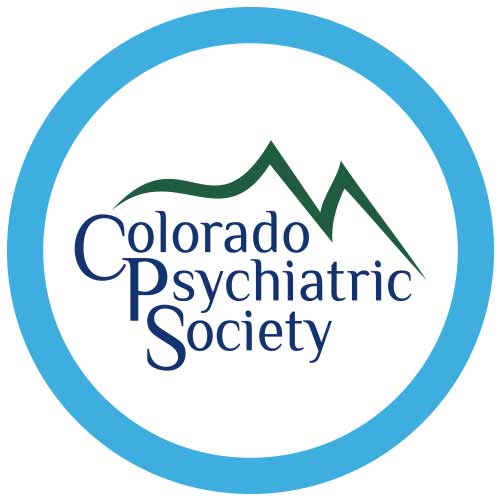
Frequently Asked Questions (FAQs)
Some of the following information and more, can be found at https://www.psychiatry.org/.
What is the difference between a psychiatrist and psychologist?
A psychiatrist is a medical doctor (completed medical school and residency) with special training in psychiatry. A psychiatrist is able to prescribe medications and other medical treatments as well as conduct psychotherapy.
Psychologists usually have advanced degrees, most commonly in clinical psychology, and often have extensive training in research or clinical practice. Psychologists treat mental disorders with psychotherapy and some specialize in psychological testing and evaluation.
Do I need to see a mental health professional?
Mental illness is treatable. The vast majority of individuals with mental illness continue to function in their daily lives. Just as with other medical illnesses, early intervention can make a crucial difference in preventing what could become a serious illness. More than a decade of research around the world has shown that early intervention can often minimize or delay symptoms, prevent hospitalization and improve prognosis. Even if a person does not yet show clear signs of a diagnosable mental illness, these “red flag” early warning symptoms can be frightening and disruptive.
If several of the following signs and symptoms are occurring, it may useful to follow up with a mental health professional.
- Withdrawal — Recent social withdrawal and loss of interest in others
- Drop in functioning — An unusual drop in functioning at school, work or social activities, such as quitting sports, failing in school or difficulty performing familiar tasks
- Problems thinking — Problems with concentration, memory or logical thought and speech that are hard to explain
- Increased sensitivity — Heightened sensitivity to sights, sounds, smells or touch; avoidance of over-stimulating situations
- Apathy — Loss of initiative or desire to participate in any activity
- Feeling disconnected — A vague feeling of being disconnected from oneself or one’s surroundings; a sense of unreality
- Illogical thinking — Unusual or exaggerated beliefs about personal powers to understand meanings or influence events; illogical or “magical” thinking typical of childhood in an adult
- Nervousness — Fear or suspiciousness of others or a strong nervous feeling
- Unusual behavior – Odd, uncharacteristic, peculiar behavior
- Sleep or appetite changes — Dramatic sleep and appetite changes or decline in personal care
- Mood changes — Rapid or dramatic shifts in feelings
One or two of these symptoms alone can’t predict a mental illness. But if a person is experiencing several at one time and the symptoms are causing serious problems in the ability to study, work or relate to others, they should be seen by a mental health professional. People with suicidal thoughts or intent, or thoughts of harming others, need immediate attention.
How do I find a psychiatrist?
Visit our Need Help page or contact your insurance company to obtain a list of in-network providers.
What can I expect from my first visit to a psychiatrist?
When you visit the psychiatrist, the doctor will ask questions about your background, family, habits, and general health and will ask why you think you need treatment. When you’ve found a psychiatrist with whom you are comfortable, you’ve finished the first part of the treatment process. The second part—working together with your psychiatrist to understand and manage your illness—is about to begin.
What treatments do psychiatrists use?
Psychiatrists use a variety of treatments – including various forms of psychotherapy, medications, psychosocial interventions and other treatments (such as electroconvulsive therapy or ECT), depending on the needs of each patient.
Psychotherapy, sometimes called talk therapy, is a treatment that involves a talking relationship between a therapist and patient. It can be used to treat a broad variety of mental disorders and emotional difficulties. The goal of psychotherapy is to eliminate or control disabling or troubling symptoms so the patient can function better. Depending on the extent of the problem, treatment may take just a few sessions over a week or two or may take many sessions over a period of years. Psychotherapy can be done individually, as a couple, with a family, or in a group.
There are many forms of psychotherapy. There are psychotherapies that help patients change behaviors or thought patterns, psychotherapies that help patients explore the effect of past relationships and experiences on present behaviors, and psychotherapies that are tailored to help solve other problems in specific ways. Cognitive behavior therapy is a goal-oriented therapy focusing on problem solving. Psychoanalysis is an intensive form of individual psychotherapy which requires frequent sessions over several years.
Most medications are used by psychiatrists in much the same way that medications are used to treat high blood pressure or diabetes. After completing thorough evaluations, psychiatrists can prescribe medications to help treat mental disorders. Psychiatric medications can help correct imbalances in brain chemistry that are thought to be involved in some mental disorders. Patients on long-term medication treatment will need to meet with their psychiatrist periodically to monitor the effectiveness of the medication and any potential side effects.
Class of Medications
- Antidepressants – used to treat depression, panic disorder, PTSD, anxiety, obsessive-compulsive disorder, borderline personality disorder and eating disorders.
- Antipsychotic medications – used to treat psychotic symptoms (delusions and hallucinations), schizophrenia, bipolar disorder.
- Sedatives and anxiolytics – used to treat anxiety and insomnia.
- Hypnotics – used to induce and maintain sleep.
- Mood stabilizers – used to treat bipolar disorder.
- Stimulants – used to treat ADHD.
Psychiatrists often prescribe medications in combination with psychotherapy.
Other treatments are also sometimes used. Electroconvulsive therapy (ECT), a medical treatment that involves applying electrical currents to the brain, is used most often to treat severe depression that has not responded to other treatments. Deep brain stimulation (DBS), vagus nerve stimulation (VNS), and transcranial magnetic stimulation (TMS) are a few of the newer therapies being used to treat some mental disorders. Light therapy is used to treat seasonal depression.
|